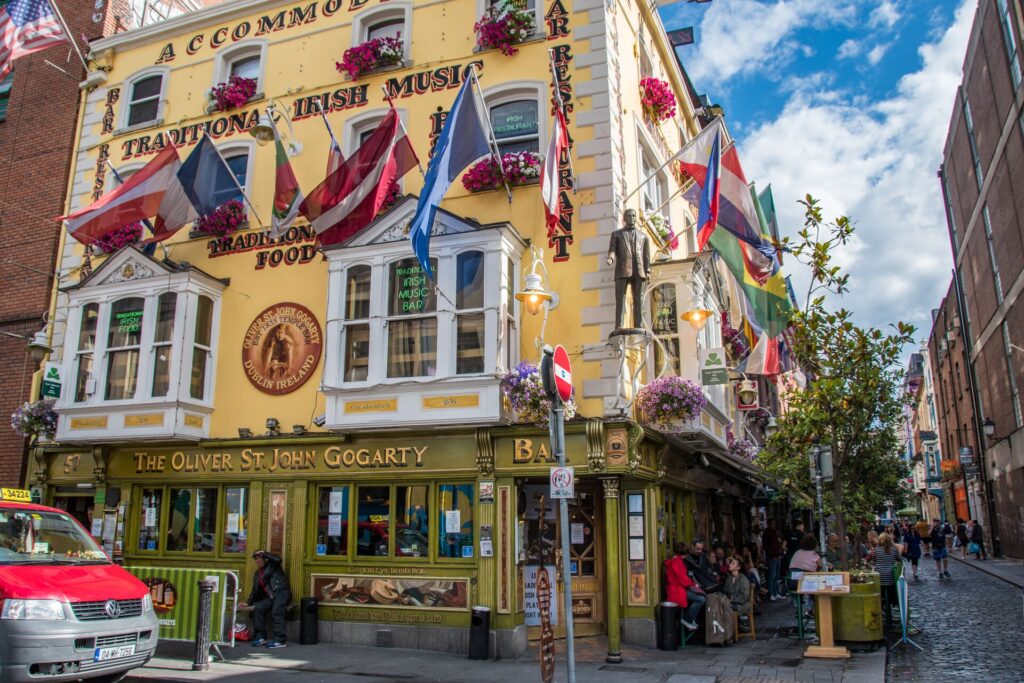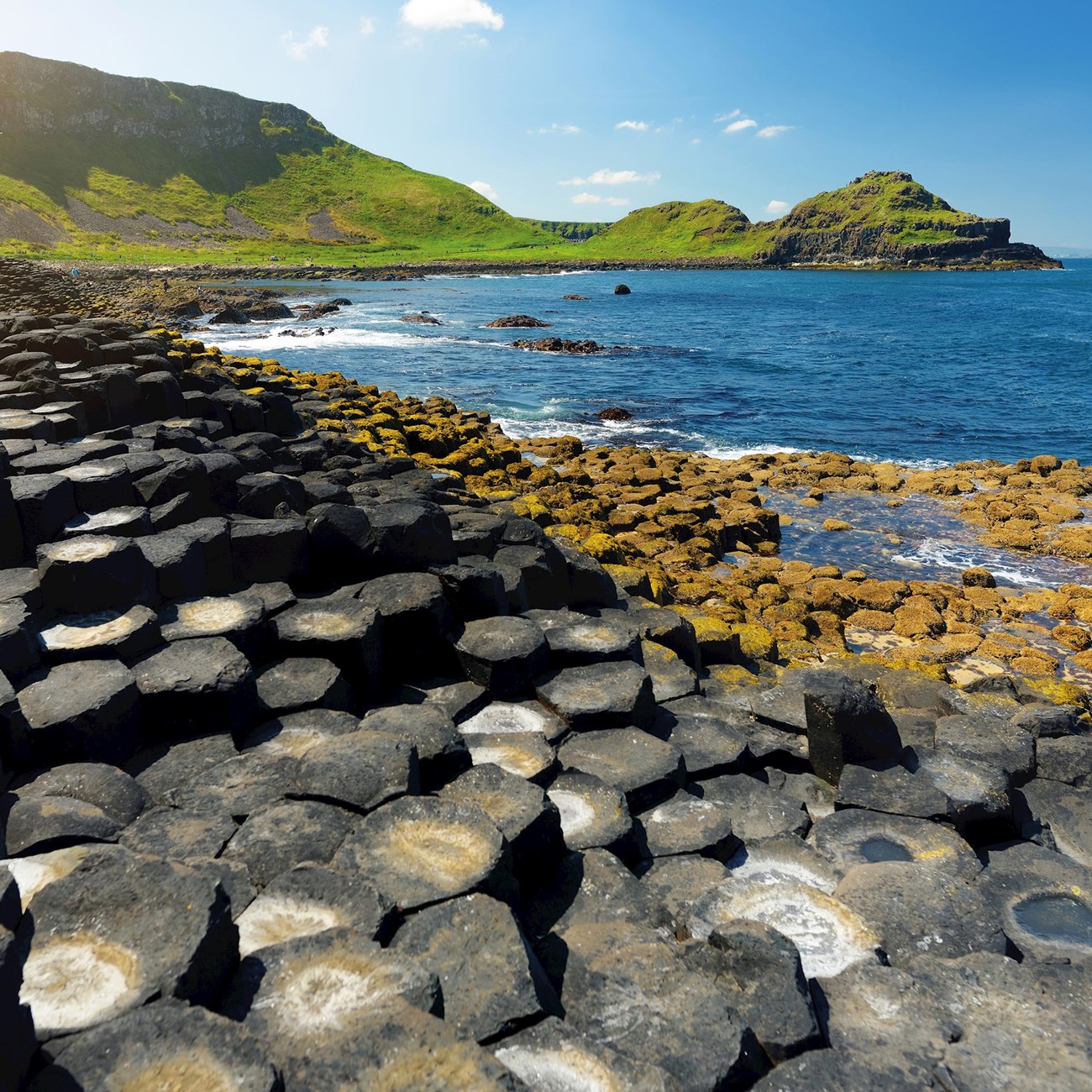Famous for its alluring coastlines, rugged wilderness and legendary folktales, Ireland’s backdrop, culture and history were made for grand storybooks.
Make the most of your visit to this poetic paradise by picking up a few Irish slang phrases before a trip there.
From ordering a Guinness to toasting your travels, here are twenty Irish slang phrases to get you chatting like a local – we’ll leave the accent up to you to figure out.
1) Pint of gat
In Dublin, there is a pub for every 100 people. So if you want to get the local lingo down it’s good to start at being able to order a Guinness, Ireland’s staple alcoholic drink. A “pint of gat” literally translates to a pint of Guinness, so impress the Dubliners while you’re at the pub by ordering a drink like a true local.
2) Sláinte!
Once you’ve got your Guinness, it’s time to say cheers! Or rather, sláinte. Pronounced “slaan-sha,” sláinte translates to health, and you’re sure to make new friends if you know how to toast a drink in the local Irish lingo.
3) Bleedin‘
You’ll hear this thrown around a lot, but don’t worry – no-one’s hurt. Bleedin’ is one of the most common Irish phrases, and is just an intensifier. If you’re saying it’s cold outside, you might say it’s ‘bleedin’ cold’ to really emphasize your point.
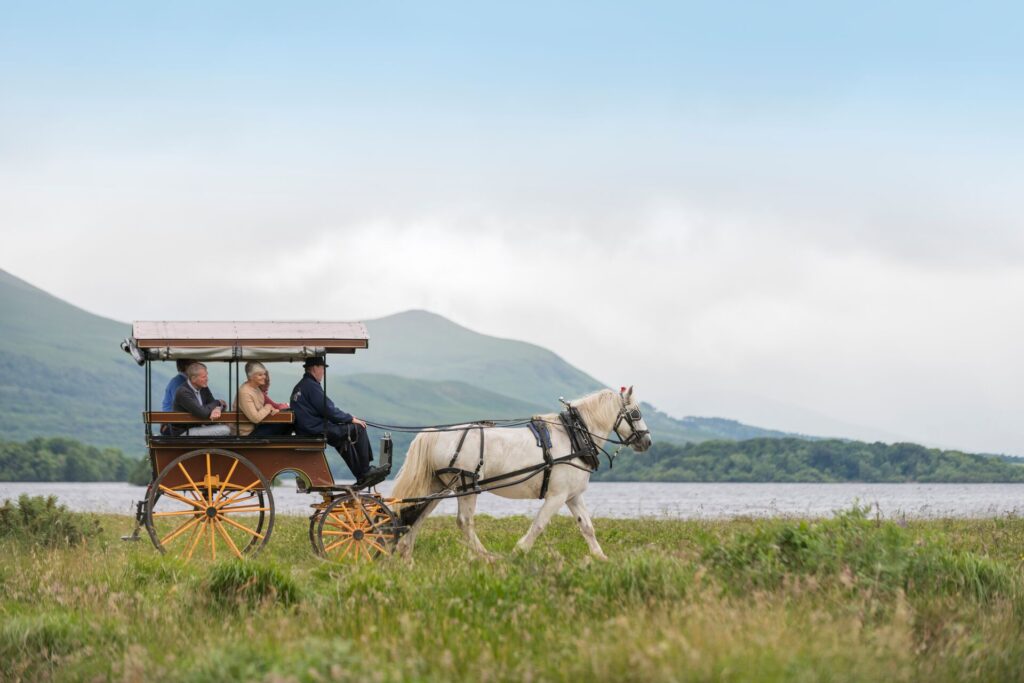
4) Banjaxed
5) What’s the craic?
Surely one of the most iconic Irish slang phrases, the ‘craic’ can mean a lot of things, depending on the context. It can mean ‘gossip’, ‘good time’, ‘fun’, ‘news’, and more. Pronounced “crack,” if you’re greeted with “what’s the craic” in Ireland, you’re being asked “how are you?” or “what’s happening?”. That person is just greeting you – or asking what the latest gossip is if they’re referring to something specific. If someone is described as ‘Good craic’, it means they’re good company, good to be around, they know how to have fun. If you say ‘last night was great craic’, you’re saying you had a great time last night.
6) Meeting / shifting
In Ireland, the term “meeting” or “shifting” is commonly used in casual slang to refer to kissing, usually in the context of a party or social event. If you hear someone say, “They were shifting at the pub last night,” it means they were kissing. It’s typically used in a lighthearted or playful way, especially among younger people.
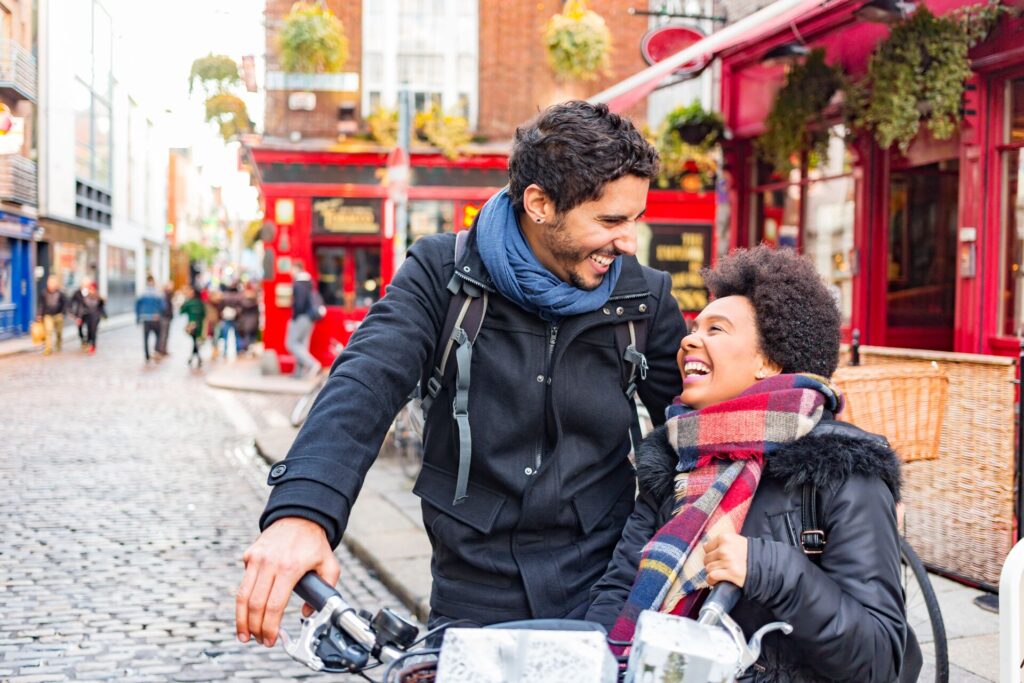
7) Dose
Wrap up when you head to Ireland to avoid catching a cold. If you do, you might hear one of the most common Irish slang phrases (given the weather) “that dose is goin’ round,” which means everyone else has the same illness or “it’s going around.” If someone has a bad dose, it means they’ve gotten quite sick. Interestingly, you can also call someone a ‘dose’ which either means someone’s a bit slow, very annoying, or hard to deal with – depending on what region you’re in.
8) Tóg go bog é
In Ireland, slang words range from colorful twists on the English language to borrowing words from Irish Gaelic, which has its own medieval alphabet. Pronounced Togue guh bug ay, this phrase is one of the latter and means to take it easy or to “chill out”. Seeing as you’ll be on vacation in Ireland, you’ll want to learn this useful Irish phrase to tell your friends back home what you’re up to.
9) Giving out
10) Acting the maggot
11) Suckin diesel
12) Grand Stretch in the evenings
13) Stall the ball
15) The Jacks
16) Up to ninety
The phrase “up to ninety” is a common Irish phrase that means someone is very busy, agitated, or stressed out. When locals say, “I’m up to ninety with work,” they’re saying that they have a lot on their plate and are feeling overwhelmed.
17) Cop on
The phrase “cop on” is a popular Irish saying that means to become aware or to smarten up, often used when someone needs to take a reality check. For example, if a friend says, “You need to cop on and start studying,” they’re suggesting that the person should recognize the importance of their situation and act accordingly. The term originates from the verb “to cop,” meaning to understand or realize something.
18) Sure look
The phrase “sure look” is a classic saying lots of Irish people use to express resignation, acceptance, or a laid-back attitude towards a situation. It’s typically followed by a statement that acknowledges the reality of a circumstance, such as, “Sure look, it’s raining again,” meaning that while the weather is disappointing, there’s not much to be done about it.

19) Mad Yoke
The phrase “mad yoke” is a quirky Irish expression used to describe something that is wild, crazy, or unusual. “Yoke” in this context refers to an person or thing, and when paired with “mad,” it means the object in question is surprising or unusual. For instance, if someone says, “Did you see that mad yoke over there?” they’re likely pointing out something odd or striking. Or you can call someone a mad yoke, meaning they’re being silly.
20) Sound
What do Irish people say when they’re happy?
There are a few phrases we’ve already mentioned that Irish people use to say they’re happy, or satisfied with something – plus a few extra:
- “I’m over the moon!” – A classic expression of saying you’re really happy.
- “I’m suckin diesel” – Remember this one? It’s used when they’re having a good, smooth day.
- “That’s grand!” – Used to show approval or happiness about something.
- “Happy days!” – Cheerful way to say that things are going well.
- “Deadly” – Particularly popular in Dublin, this is used to say something is awesome.
Can’t wait to go? Join us on our Britain and Ireland tours like the Country Roads of Ireland and practice your new phrases on the locals!
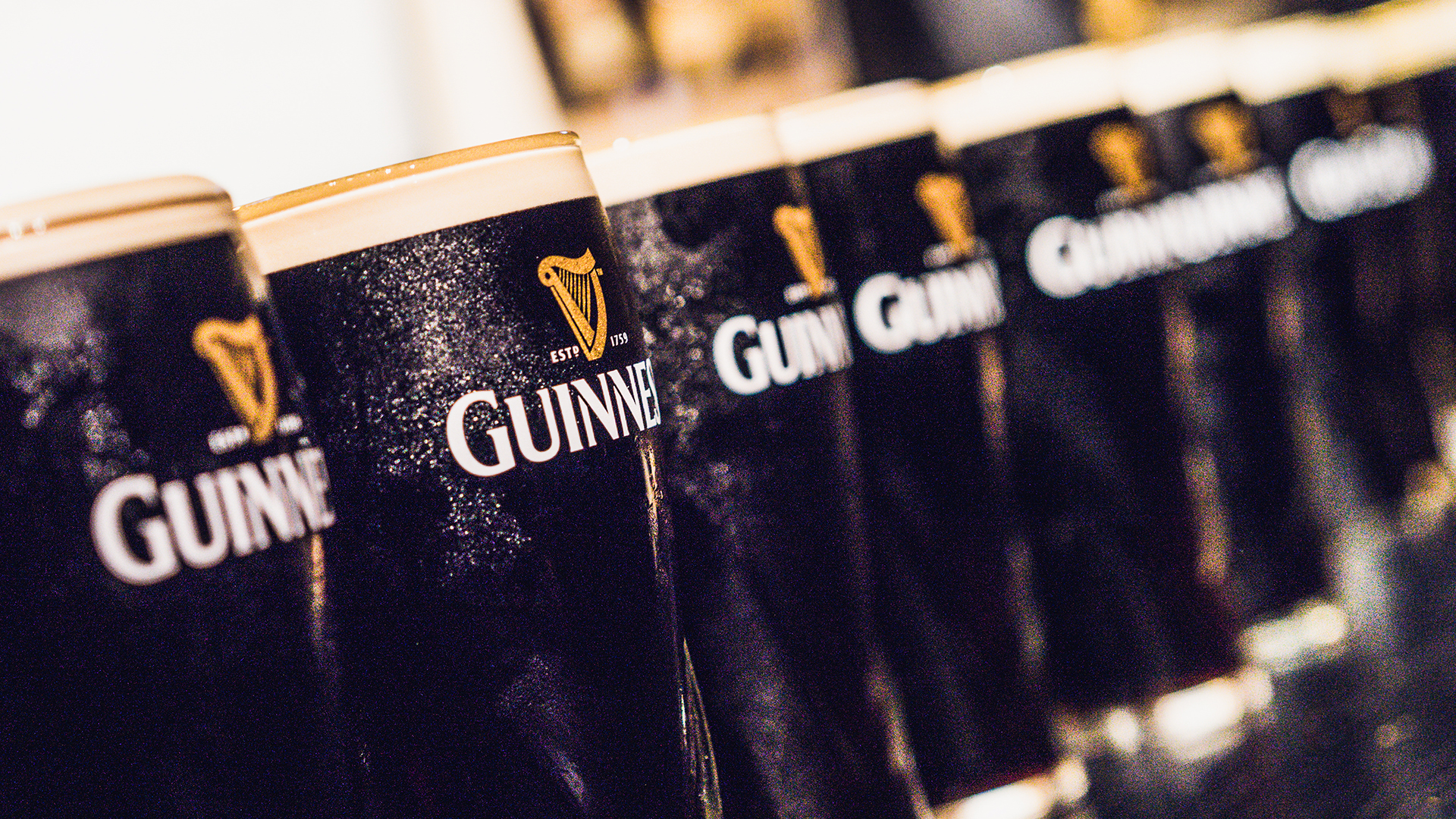

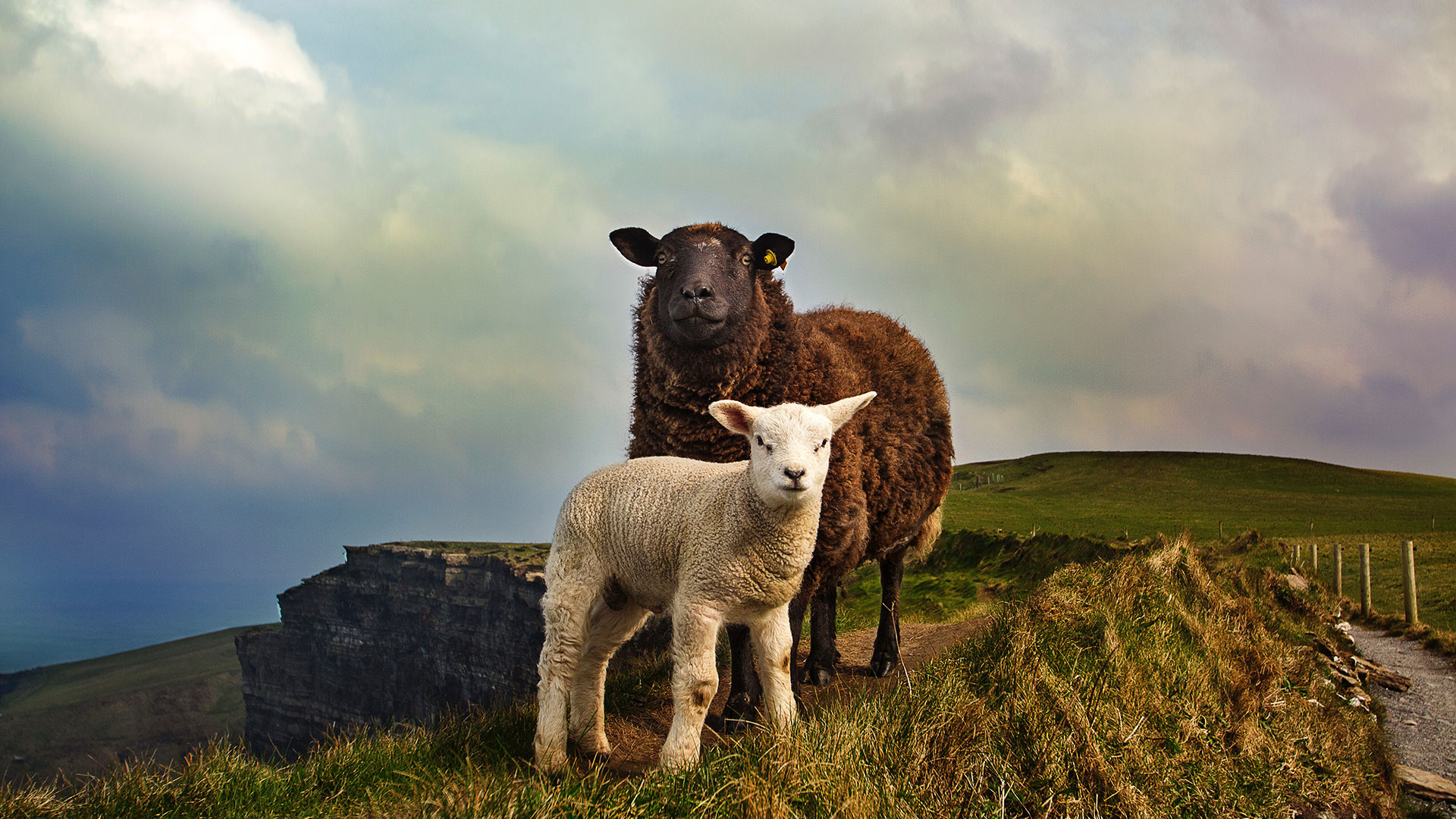
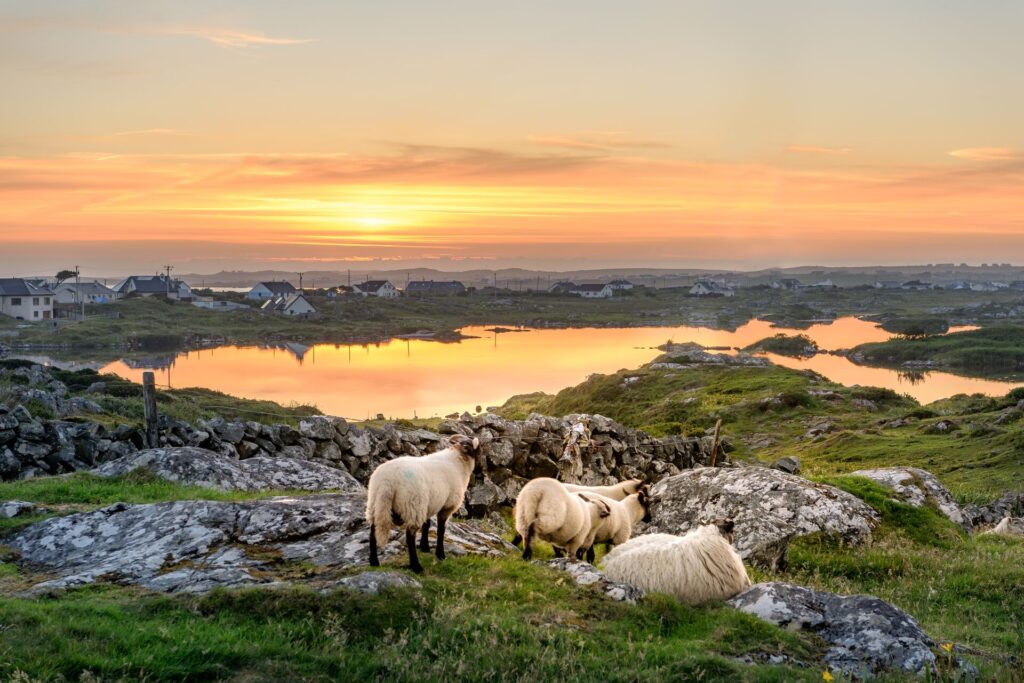 The phrase “grand stretch in the evenings” is a charming Irish saying that refers to the noticeable lengthening of daylight during the spring and summer months. As the days get longer, especially after a long winter, Irish people might say, “There’s a grand stretch in the evenings,” highlighting the uplifting feeling of more sunshine with which to enjoy the day.
The phrase “grand stretch in the evenings” is a charming Irish saying that refers to the noticeable lengthening of daylight during the spring and summer months. As the days get longer, especially after a long winter, Irish people might say, “There’s a grand stretch in the evenings,” highlighting the uplifting feeling of more sunshine with which to enjoy the day.
